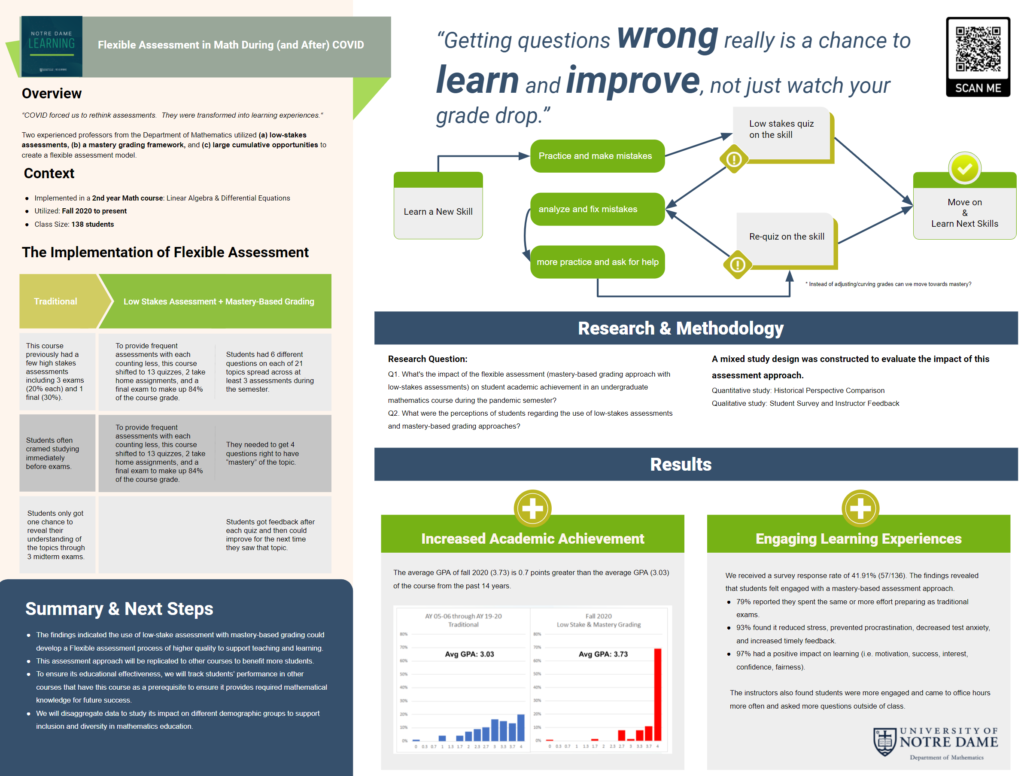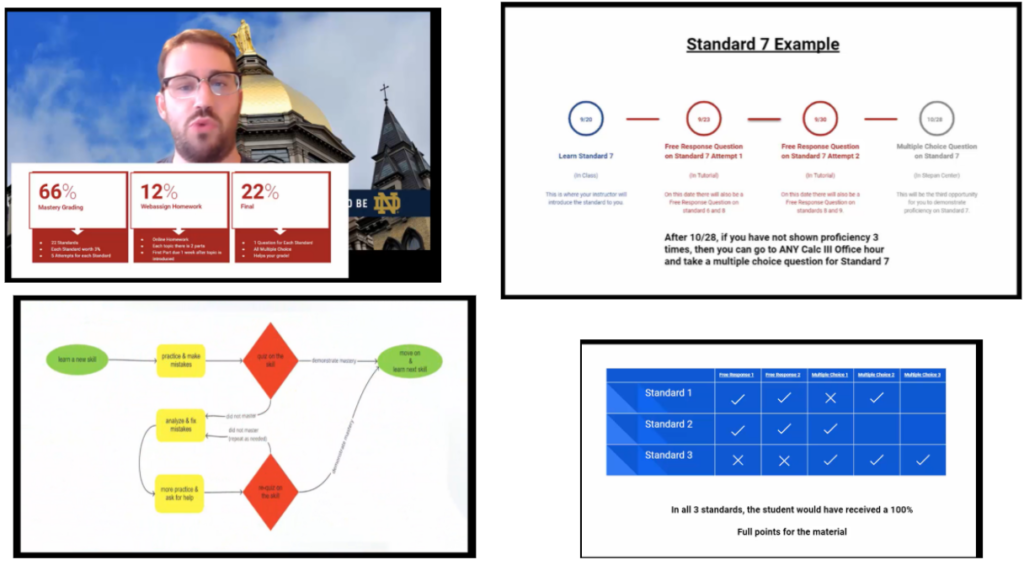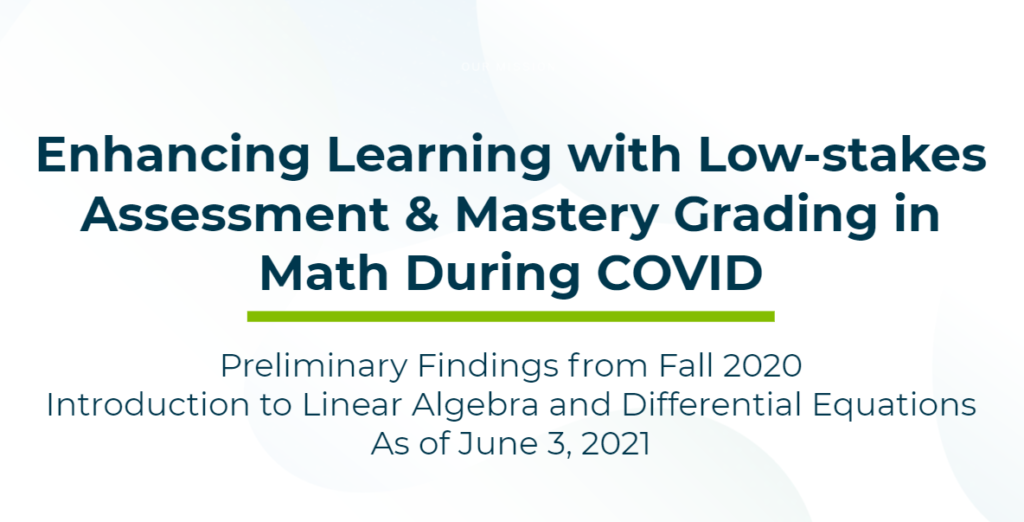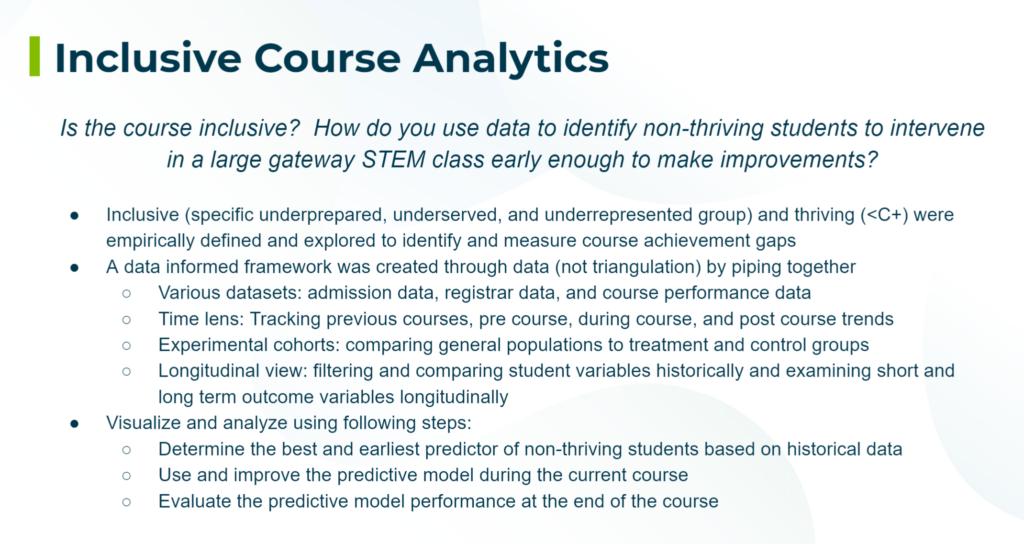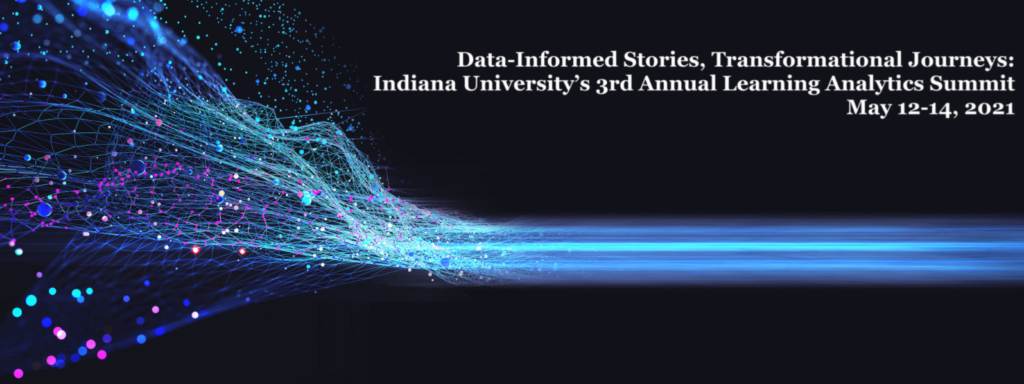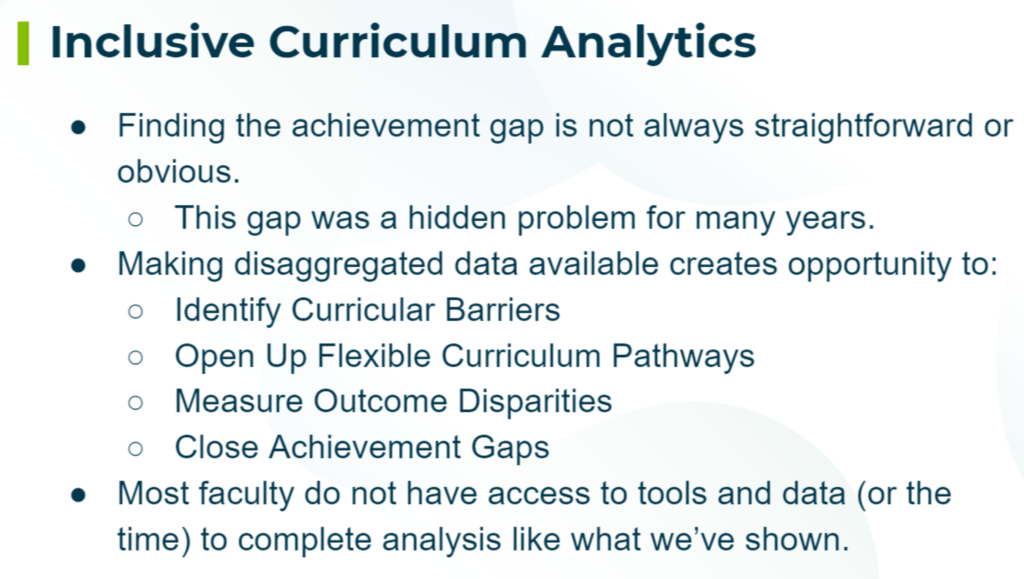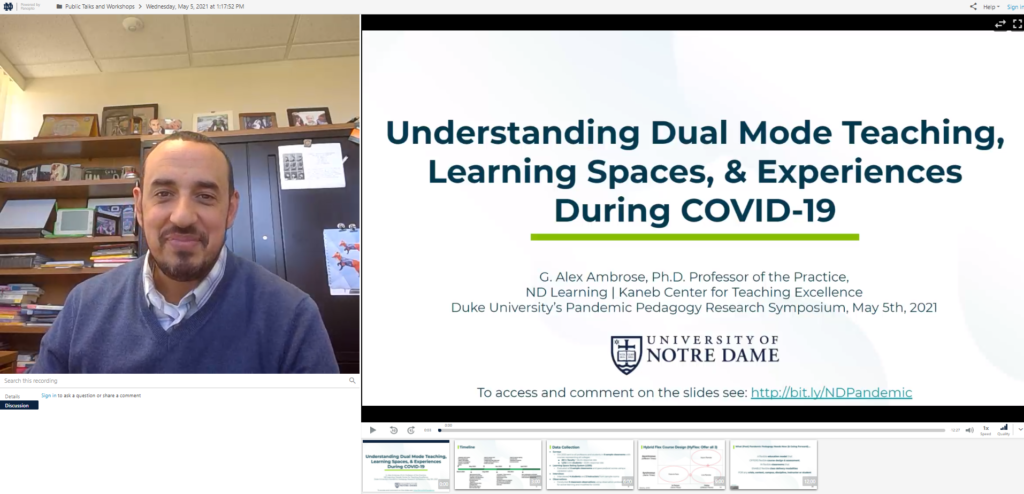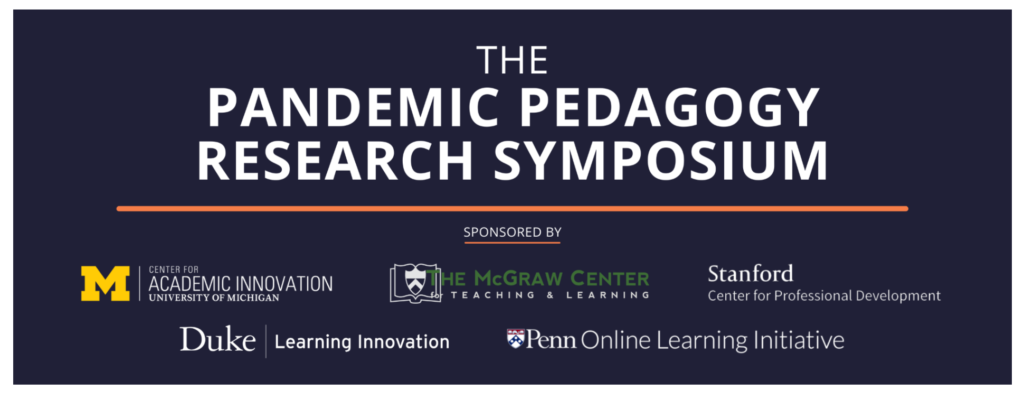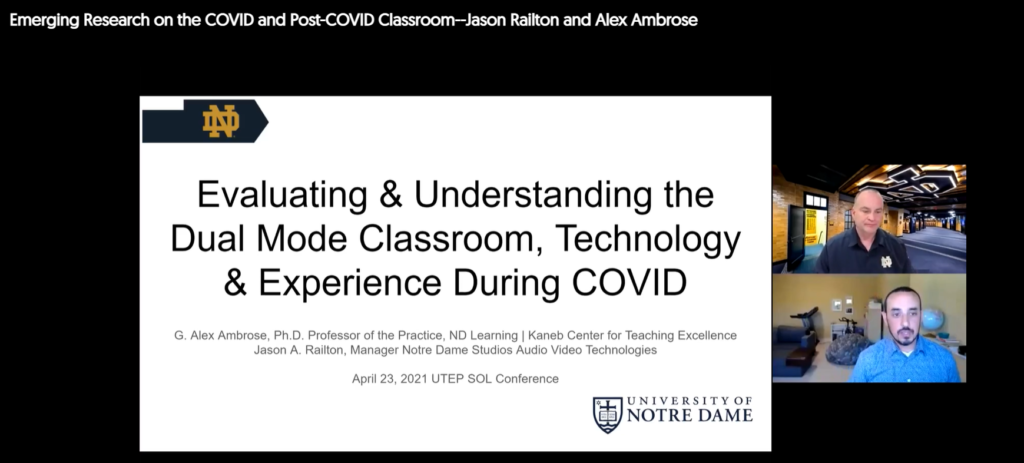Learning Research Lab Postdoc & Graduate Associate
Positions Available:
1-2
Description:
The ND Learning | Kaneb Center for Teaching Excellence seeks graduate students and postdocs to serve as Kaneb Center Postdoctoral and Graduate Associates (PGAs)A potential PGA would work with a team of faculty on course assessment, program/grant evaluation, conference proposals/presentations, and support articles for publication. If hired you would participate in applied learning research and work toward submitting at least one co-authored article for publication, submitting a conference and/or grant proposal, and creating a culminating poster presentation or conducting faculty SoTL and assessment-related workshops. This position is an excellent opportunity to develop as a professional, a teaching scholar-practitioner. For more information see the ND Learning Research Lab blog at: https://kaneb.nd.edu/real/.
Qualifications:
Applicants should have completed one or more semesters of TAing or teaching, preferably at Notre Dame, before holding this position. Postdocs may be eligible, Advisor and DGS approval will be required before hiring is finalized.
Hours per week:
Throughout the academic year, PGAs contribute an average of 5 hours per week, scheduled according to availability.
Hourly Rate:
Receive pay up to $20/hour.
Schedule:
Any day of the week, some remote work is possible and the time of day is flexible with your schedule. They will attend at least 1 lab meeting every two weeks.
Comments:
To apply, please submit the information below to Dr. G. Alex Ambrose, Director of Learning Research at Notre Dame Learning | Kaneb Center of Teaching Excellence at gambrose@nd.edu
-Name
-Phone
-Department
-Current year in graduate school & anticipated year of graduation
-Paragraph describing your interest in this position
Learning Research Lab Undergraduate Research Assistant
Positions Available:
1-3
Description:
In this job, you will plunge headfirst into applied educational research with Notre Dame Learning’s Kaneb Center for Teaching Excellence. The center conducts multidisciplinary research revolving around higher education, including improving classroom space and course design and evaluating indicators of active learning. You will design and disseminate digital surveys to faculty and students and gain experience with technology, data analytics, and visualization. You will also conduct individual research as necessary for each project. No previous experience is necessary to apply. Full-time work in Notre Dame Learning’s Kaneb Center for Teaching Excellence may begin this semester or next semester, depending on the candidate’s preference, but a few days of mandatory training this semester is required. For more information see the ND Learning Research Lab blog at: https://kaneb.nd.edu/real/.
Qualifications:
The successful candidate will have…
-Independent problem-solving skills
-Good critical thinking and communication skills
-Patience and friendly attitude towards those seeking help
-Ability to learn and use new technology
Hours per week:
5-10
Schedule:
Any day of the week, some remote work possible and flexible with your schedule
Hourly Rate:
The hourly rate can be discussed during the interview but can range between $8.32-$10
Comments:
To apply, please submit the information below to Jessica Staggs jstaggs@nd.edu of Learning Research Labat Notre Dame Learning | Kaneb Center at gambrose@nd.edu
-Name
-Phone
-Current year & anticipated year of graduation
-Resume
-Interview availability of day/time ranges
Postdoctoral Scholar: Educational Data Science
University of Notre Dame: Office of the Provost: Lucy Family Institute for Data and Society
Description:
The University of Notre Dame is committed to offering an unmatched learning experience for all students (undergraduate, graduate, professional). The Lucy Institute for Data & Society and ND Learning (the University’s learning organization) invite applications for a postdoctoral scholar in educational data science to help us advance this work. We are especially interested in scholars who have demonstrated expertise that connects quantitative methods with applied inclusive pedagogies and scholars who wish to conduct original research into learning efficacy AND implement that research at Notre Dame as part of a dynamic and collaborative team with deep experience in data mining, learning analytics, assessment, learning/instructional design, and pedagogical science.
The position will offer opportunities to expand experience in:
-This position is funded jointly by the Lucy Family Institute for Data & Society and Notre Dame Learning; the postdoc will be supervised by Dr. Ying (“Alison”) Cheng in the Department of Psychology and will also be a team member of ND Learning.
-The salary range is anticipated to be 55-60K. The initial appointment is for one year, with the possibility of renewal for an additional two years. We will begin reviewing applications on January 28th, 2022 with a close date of 2/15/2022. The start date of the position is flexible, but we expect the postdoc to begin their appointment no later than July 1, 2022.
Qualifications:
Ph.D. in quantitative methods, educational psychology, learning science, statistics/data science or a closely related field, in hand by the time of hire.Experience conducting educational research in school settings.
Preferred Qualifications: Experience in the following areas: quantitative methods, including machine learning, structural equation modeling, and multi-level modeling; inclusive pedagogy or educational development in higher education; student engagement and learning analytics; identity, psychometrics, or log data analysis.
We welcome applicants with at least one or more of these desired qualifications (we do not expect applicants to have expertise in all of these domains).
Application Instructions
Please submit your expressions of interest in this postdoctoral opportunity here, including:
-Current CV
-A cover letter that includes a statement of research interests and a description of scholarly and professional experience relevant to the position
-No more than three relevant publications (aligned with this position)
-A References Document with contact information for at least three scholarly references (The committee will not contact references until finalists are selected.)
Deadline: Feb 15, 2022 at 11:59 PM Eastern Time
Apply here at https://apply.interfolio.com/99837
